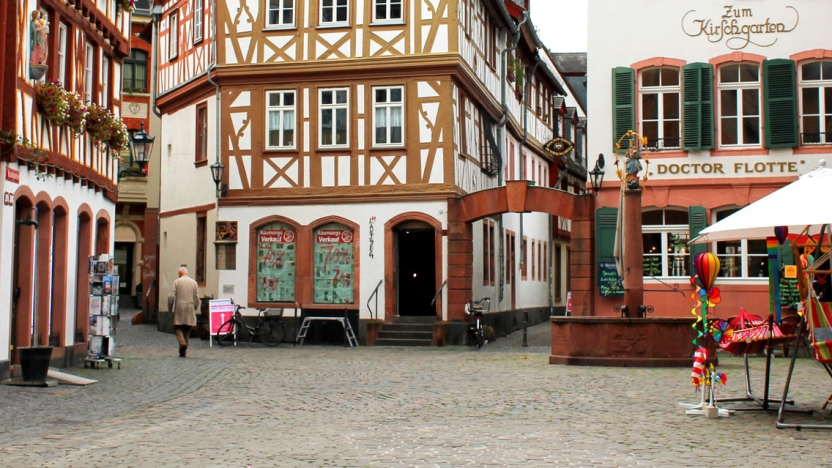Study Abroad

The integration of the Middlebury Schools Abroad in Germany with the curricula of the Freie Universität in Berlin, the Johannes-Gutenberg Universität in Mainz, and the University of Potsdam gives students the opportunity to work alongside German students in regular German undergraduate classes.
The Middlebury Schools Abroad in Germany have sites located in Berlin, Potsdam, and Mainz. The schools are open to all qualified students, German majors as well as others. Students interested in attending the program in their junior year should consult with the department as early as possible, but at the latest in the fall of their sophomore year. Prospective participants in the Berlin or Mainz programs must have completed at least two courses beyond the 0200-level by the time they go to Germany. They must have an overall average of B or better and at least a B average in German.
A wide range of courses is available to Middlebury students abroad, including offerings in other departments, such as history, political science, or economics. By planning ahead in consultation with their advisors, students may find that they will be able to satisfy a significant part of their German major while studying in Germany, as well as making progress toward a potential second major by taking courses in that area.
Most courses taken at Berlin and Mainz will count toward the Middlebury German major, provided that they relate to German studies or German literature. However, each course may be counted only once: either toward German or toward another major. Final determination of which courses may be counted toward the German major will be made by the department chair in consultation with the director of the School in Germany who resides in Mainz.
Berlin
Berlin is Germany’s capital and largest city. With the fall of the wall, the city has thoroughly reinvented itself, developing a new vigor and excitement that is unique indeed. The new Berlin has begun attracting young people, students, artists, musicians, and activists from all over the world. It is a city of contrasts and rich diversity, offering an amazing range of cultural possibilities, from the Museuminsel (the island of museums), the Berlin Philharmonica and the Bauhaus-Archiv, to the Brandenburger Tor, the SONY-Center at the Potsdamer Platz and the techno-music festival, the Love Parade. More than 160 museums, 50 theaters, and three opera houses make Berlin truly the cultural capital of Germany. The European exuberance of this multicultural metropolis manifests itself everywhere, as can be seen in the annual Berlin Film Festival.
Potsdam
Potsdam is the capital of the federal state of Brandenburg, located 16 miles southwest of downtown Berlin. The former residence of Prussian royalty and the Kaiser, Potsdam is full of history: you can visit Cecilienhof castle that hosted the Potsdam Conference in 1945 or spend the day at Frederick the Great’s palace Sanssouci (Germany’s largest World Heritage site). In fact, several of UP’s departments are located right in the New Palace, an annex to the famous Sanssouci. Study Philosophy, Mathematics, Physics, and other subjects within beautiful barocque architecture. Or take the bus to Babelsberg, home to the oldest large-scale film studio in the world that has produced films ranging from Fritz Lang’s Metropolis (1927) to Inglourious Basterds (2009). The Babelsberg campus houses the Economics, Social Studies, Computer Science faculties, among others.
Mainz
Mainz is the state capital of the Rhineland-Palatinate, a city with historical roots reaching back more than 2,000 years to Roman times. Today Mainz serves, among other things, as headquarters of the ZDF, one of Europe’s largest television networks. Centrally located, the city provides easy access to Frankfurt/Main, as well as other cultural centers in Germany and neighboring France. The Mainz Fasenacht (Mardi Gras), celebrated each year in mid-February, is famous throughout Germany for its colorful parades. And the university’s name celebrates Johannes Gutenberg who in the year 1440 changed the literary world with the invention of the printing press.
